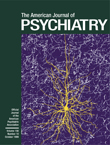Clozapine-Induced Stuttering: Epileptic Brain Activity?
Ms. A was first hospitalized at 24 years of age with paranoid ideation and ideas of persecution. Her formal thinking was characterized by a looseness of association. Hallucinations were never documented, and results of her physical examination, laboratory tests, and brain imaging studies were normal. Her family history included mental illness; her mother and a brother had both been hospitalized for paranoid psychoses. Neuroleptic treatment with several typical neuroleptic drugs was associated with acute dystonia (retrocollis and oculogyric crisis), requiring cholinergic medication. Clozapine treatment, 450 mg/day, was initiated. Her EEG recordings showed diffuse slowing but no epileptic activity at this dose. A recurrence of psychotic episodes required several hospital readmissions and temporary increases of her clozapine dose. EEG abnormalities with triphasic sharp waves were first reported at doses of 650 mg/day but remitted when the dose was decreased below 600 mg/day.Ms. A reported stuttering for the first time when her dose of clozapine was increased to 700 mg/day during a psychotic episode. The stuttering did not completely remit, but the intensity fluctuated. Intermittent sharp waves were documented in her EEG recordings; they disappeared after a dose reduction to 650 mg/day. Ms. A increased her clozapine dose because psychotic symptoms occurred; she ignored the greater intensity of her stuttering. At a clozapine dose of 750 mg/day, she developed a generalized epileptic seizure, followed by myoclonic jerks of her arms, which persisted for approximately 2 hours after her admittance to a neurological intensive care unit. EEG recordings showed generalized polyspike wave activity, so antiepileptic treatment was started with intravenous phenytoin; her dose of clozapine was reduced to 600 mg/day. Her stuttering disappeared along with the addition of the anticonvulsive medication and the normalization of her EEG recordings. Phenytoin treatment was replaced with valproate treatment. After a follow-up examination at 6 months, her stuttering had not reoccurred on a regimen of clozapine, 600 mg/day, and valproate, 900 mg/day.
References
Information & Authors
Information
Published In
History
Authors
Metrics & Citations
Metrics
Citations
Export Citations
If you have the appropriate software installed, you can download article citation data to the citation manager of your choice. Simply select your manager software from the list below and click Download.
For more information or tips please see 'Downloading to a citation manager' in the Help menu.
View Options
View options
PDF/EPUB
View PDF/EPUBGet Access
Login options
Already a subscriber? Access your subscription through your login credentials or your institution for full access to this article.
Personal login Institutional Login Open Athens loginNot a subscriber?
PsychiatryOnline subscription options offer access to the DSM-5-TR® library, books, journals, CME, and patient resources. This all-in-one virtual library provides psychiatrists and mental health professionals with key resources for diagnosis, treatment, research, and professional development.
Need more help? PsychiatryOnline Customer Service may be reached by emailing [email protected] or by calling 800-368-5777 (in the U.S.) or 703-907-7322 (outside the U.S.).

